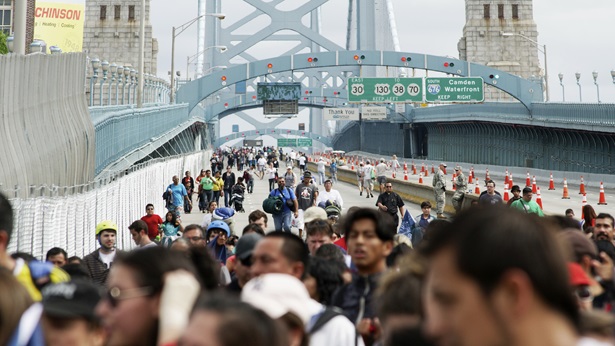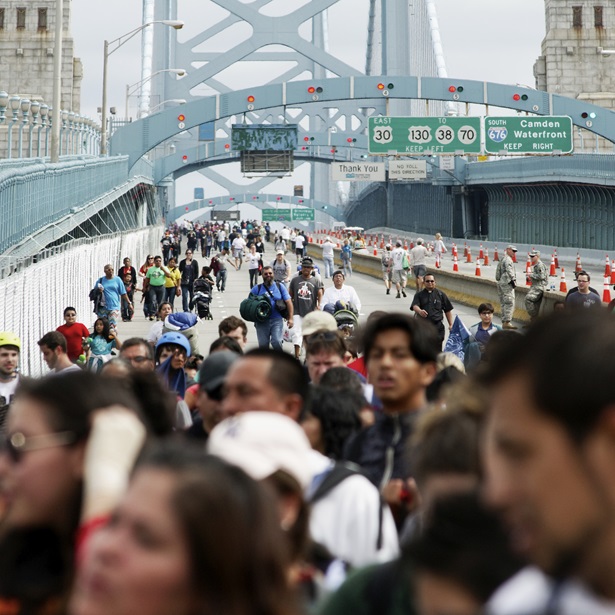A New Way of Looking at Philadelphians
Beyond income, neighborhood, and race
Since 2009, The Pew Charitable Trusts has produced detailed research about Philadelphia, analyzing the challenges the city has faced and documenting the ways the city has changed. As part of that research, Pew has commissioned public opinion polls on a regular basis, gauging residents’ views on the quality of city services, the condition of neighborhoods, and the outlook for the future. A key element of these polls has been to see how opinions differ among groups defined by income, neighborhood, race, age, and levels of education.
Building on that research, Pew has created a new way of looking at Philadelphians, one rooted in how they think about the city rather than where they show up in demographic categories. The analysis, based on a telephone survey of 1,603 randomly chosen Philadelphians in early 2015, sorts adult city residents into four groups. We have labeled those groups Dissatisfied Citizens, Die-Hard Loyalists, Uncommitted Skeptics, and Enthusiastic Urbanists. Here is a brief description of each, ordered by size.
The four groups of Philadelphians
- Dissatisfied citizens: The largest of the four groups at 30 percent of the population, they are unhappy with their neighborhoods, disenchanted with city government, and not optimistic about Philadelphia’s prospects. Many are economically disadvantaged. Most have lived in Philadelphia their entire lives but would move out if they could. In any number of ways, they feel stuck.
- Die-Hard Loyalists: These deeply committed individuals, 25 percent of all residents, see a bright future for Philadelphia and want to be part of it. They feel strong ties to their neighbors and think more should be done to preserve city neighborhoods and support longtime residents. They believe in hard work but want government to help people when necessary. Many are lifelong Philadelphians.
- Uncommitted Skeptics: These residents, who also represent 25 percent of the city, have little attachment to Philadelphia and, as a group, are ambivalent about the city’s direction. They have their doubts about the effectiveness and true goals of local institutions, including the business community, the police department, and local government generally. Many of them see their futures elsewhere.
- Enthusiastic Urbanists: The smallest group, 19 percent of the population, these Philadelphians are excited about the city and its future. Many are relative newcomers who view Center City as vital to the entire city’s well-being and think it is essential for Philadelphia to attract more residents. They have high regard for city government and want to see more economic development.
The groupings are the result of a process known as cluster analysis. In this case, 26 questions from the 2015 survey were used to create categories of Philadelphians intended to be both meaningful and informative.
For most of the 26 questions, respondents were given two statements related to a particular subject and were asked to select the one that more closely represented their view. The questions, specifically constructed for the purpose of this analysis, covered such topics as the city’s current direction, future, neighborhoods, police, and government.
This effort was modeled on work done nationally by our colleagues at the Pew Research Center in Washington. Through this type of polling and analysis, the center has sorted Americans into groupings based on values and attitudes, going beyond the simple labels of liberal and conservative. For Philadelphia, we set out to do something similar—although not on the left-right spectrum—in hopes of increasing public understanding of the city and its residents.


What Sort of Philadelphian are You?
What Sort of Philadelphian are You?

A New Way of Looking at Cities
An innovative set of polling questions about Philadelphia offers a different perspective for crafting urban policy









